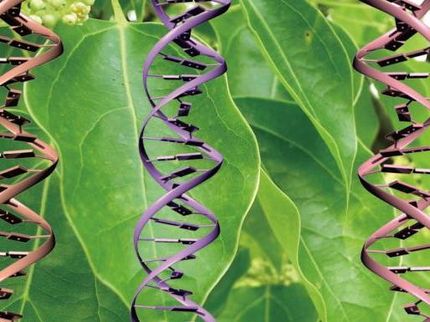Biologists isolate genes that regulate the sleep-feeding conflict
Advertisement
A team of biologists has isolated genes that regulate the sleep-feeding conflict. The study, which appears in Current biology, offers new insights into how the brain chooses between behaviors that are critical for survival. The work was conducted by researchers in New York University's Department of Biology, the Skirball Institute for Biomolecular medicine at NYU School of Medicine, and the Department of Neurobiology at the University of Massachusetts Medical School. Previous research has shown that neural systems controlling sleep and feeding in mammals are interconnected: sleep deprivation promotes feeding, whereas starvation suppresses sleep, but little was known about the genes and neural basis of this interaction. The NYU and UMass research team sought to determine which genes are responsible for these behavioral associations. To do so, they examined the genetic makeup of the fruit fly Drosophila. The genes that make up Drosophila's molecular clock have counterparts with similar functions in mammals, such as those controlling sleep-wake regulation and metabolism. Because of this similarity, it may be possible to identify genes in fruit flies that can be used to treat problems in people, such as sleep and metabolism-related disorders. The researchers first determined that food deprivation in fruit flies suppresses sleep, meaning lack of food affects flies' sleep behaviors the same way it affects mammals' sleep. The researchers then sought to isolate which genes and neurons are responsible for the regulation of this behavior. After an initial screening of 2,000 genes, they identified over a dozen involved in the interaction between feeding and sleep. From this smaller population, they focused on two genes, Clock (Clk) and cycle (cyc), which play a role in fruit flies' circadian, or biological, clock. Both genes, whose activity was particularly robust in both sleep and feeding, are also present in mammals. To determine the impact of these two genes on sleep-feeding relationship, the researchers examined fruit flies with and without the Clk and cyc genes under food deprivation conditions—the flies were given only a liquid gel containing no nutrients over a 24-hour period. The researchers monitored the flies' movement to determine sleep behavior. Their results showed a three-to-four-fold reduction in sleep in starved flies missing the Clk and cyc genes compared to flies possessing these genes. The findings therefore demonstrated that both Clk and cyc aid in sleep under food deprivation conditions. "This is a significant advance in how we approach behavioral genetics," said Alex Keene, a post-doctoral researcher in NYU's Department of Biology and the study's lead author. "We know that the brain is wired to engage in more than one behavior at a time, but less clear is the role different genes play in these actions." "These findings are transformative because they show that a gene can do more than control one behavior," he added. "Clock and cycle can apparently integrate complex behaviors and therefore determine how an animal should act in a certain environment. These findings shed additional light on how genetics affects the brain's ability to make complex decisions." "This work by Alex determines part of the neural mechanism that mediates a conflict in a hungry fly's brain in deciding whether to seek food or sleep," said Scott Waddell, an associate professor of neurobiology at the University of Massachusetts Medical School and one of the study's co-authors. "It provides a foundation for understanding how the neural control of these two homeostatic behaviors is integrated in the brain."
















































